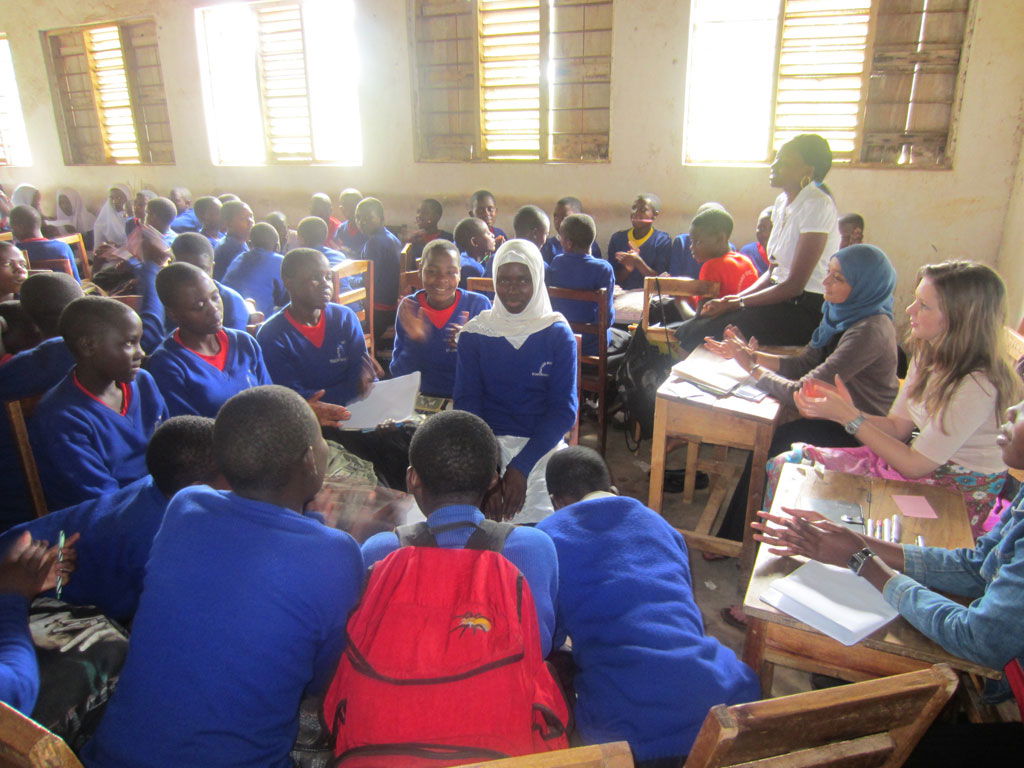Community Education volunteer project

ESCF volunteer opportunities focus on education and the conservation of endangered species. Participants can engage in various projects aimed at improving local education, raising awareness about environmental conservation, and actively contributing to the protection of wildlife.
General Volunteering Programs
ESCF offer programs that allow volunteers to work in local schools. Volunteers assist teachers, create learning materials, and engage students in extracurricular activities such as sports and arts. Through these activities, volunteers help improve children’s education while promoting environmental awareness. Special programs are also available for teaching English, which facilitates broader communication skills necessary for future careers, especially in conservation.
- Specialized Conservation Programs
Specific initiatives focus on endangered species, such as the efforts led by the Wildlife Conservation Society in Tanzania and various conservation clubs. These clubs are aimed at youth and serve both educational and community engagement purposes, helping to inform families and local populations about the importance of biodiversity and conservation practices. - Eco-education Initiatives
ESCF Eco-education Program focuses on environmental education into local school curricula, utilizing partnerships with local organizations, government and international bodies. For example, schools may host workshops or field trips to teach students about local ecosystems, proper conservation techniques, and strategies for sustainable living. - Community Engagement
The blend of education and conservation is emphasized in Tanzania through clubs and school-based programs aimed at teaching children about sustainable practices. Community involvement is crucial, as it ensures that both volunteers and locals participate actively in conservation efforts, establishing a sense of ownership over the initiatives.
Engagement Process and Benefits
- Hands-on Experience: Volunteers are often expected to take control of classrooms, develop curricula, and lead extracurricular activities, providing invaluable on-ground experience in teaching and community engagement.
- Cultural Immersion: Volunteering in Tanzania presents opportunities to immerse oneself in local culture. Volunteers engage in local traditions, explore historical sites, and enjoy the natural beauty of Tanzania, all while contributing to significant social and environmental initiatives.
- Skill Development: Through these varied experiences, volunteers not only contribute to educational and conservation initiatives but also develop vital skills that enhance their personal and professional growth – such as teaching skills, cross-cultural communication, project management, and teamwork.
Conclusion
The educational volunteer opportunities in Tanzania, in conjunction with conservation projects, provide a multidimensional framework where volunteers can impact local communities and wildlife conservation significantly. Engaging in these initiatives not only enriches the lives of Tanzanian youth but also fosters a greater awareness of the importance of protecting endangered species and cultivating sustainable practices.Volunteers looking to make a meaningful contribution while experiencing the rich culture and beauty of Tanzania are encouraged to explore these programs and consider the profound difference they can make while developing their skills and understanding of global conservation issues. Collaborate with ESCF Now!